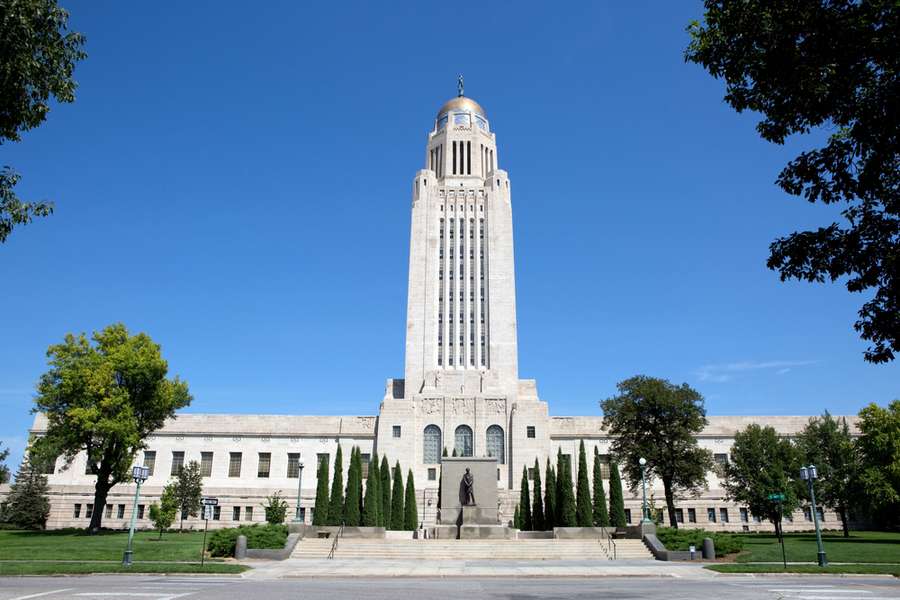
Nebraska Legislature
News
NCC tallies some wins, some losses during legislative session
April 26, 2022
Although two major bills supported by the Nebraska Catholic Conference (NCC) did not pass during the 107th Nebraska Legislature’s “short session” this year, notable progress was made in the “messaging war,” said Tom Venzor, NCC executive director.
And for Venzor, that’s enough upon which to pin his hopes for next year’s 108th Legislature.
He expects that the two bills – LB933, the Human Life Protection Act, and LB364, the Opportunity Scholarships Act – could be reintroduced in some form.
LB364, introduced by Sen. Lou Ann Linehan, aimed to increase access to scholarships for children from low-income families to attend private and parochial schools. This legislation has been a major priority for the NCC for several years.
It advanced to floor debate early in the session, but narrowly failed to overcome a filibuster, Venzor said. A later effort packaging that bill with several other tax credit bills advanced from committee but did not receive floor debate due to time constraints.
But, over the past two years, every senator from a minority background and a growing number of Democrat senators have offered some measure of support for school choice legislation, he said.
“These are real, tangible, important victories, because they show that it’s not an issue that belongs to one party or one socio-economic class,” Venzor said. “It’s a policy that, across the board, can be supported by any number of people.”
ABORTION BILL
Also falling victim to the filibuster was the Human Life Protection Act, a “trigger bill” introduced by Joni Albrecht, that would have outlawed abortion in Nebraska in the event the U.S. Supreme Court overturns Roe v. Wade.
The bill was pulled from the Judiciary Committee to allow first round floor debate, which yielded a substantial discussion of its merits and the dignity of human life, Venzor said.
“There were some really impactful personal stories from a number of senators. So, the debate wasn’t just a bunch of factoids, but some very deep, personal stories that really get to the heart of the issue, which is the humanity of the unborn child.”
Although the bill did not advance during the legislative session, the governor could call a special session of the Legislature to reconsider it if Roe v. Wade is overturned in the coming months.
“Those bills came extremely close,” Venzor said. “They were just shy of being able to beat filibusters.”
ARPA ALLOCATIONS
However, significant success was achieved on behalf of immigrants, refugees and low income populations, he said, in the form of LB1014, which allocates $1.04 billion in federal funding from the American Rescue Plan Act (ARPA) to help Nebraskans recover from the economic impacts of the COVID-19 pandemic.
Allocations include $20 million in food assistance, $20 million in tax credits for development of low income rental housing and $9 million for development of affordable housing, job training and placement services for immigrants and refugees.
A companion bill, LB1024, specifically allocates $335 million in ARPA funds for North and South Omaha, and other impoverished areas of Nebraska for housing, education and economic development.
“I think they are creating a once-in-a-generation opportunity for investment to be made in some of our lowest income and least economically developed areas or our state,” Venzor said. “That could really be transformational for some of our areas that have not been given much attention from the level of public policy.”
TIME CONSTRAINTS
Time was the biggest enemy with regard to other bills of interest to the NCC, Venzor said. The 60-day session, which ended April 20, saw two bills fail to advance from committee to floor debate because of time constraints.
They were LB781, the Heartbeat Act, introduced by Sen. Julie Slama, which would have banned abortion once a heartbeat can be detected in the preborn child, and LB1086, the Chemical Abortion Safety Protocol Act, introduced by Sen. Suzanne Geist, which would have established health and safety measures – including reporting requirements – on chemical abortions, and ban the procedure altogether after seven weeks of pregnancy.
Numerous other bills advanced from committees but were unable to be debated for lack of time.
“There was an incredible amount of filibustering all throughout the session, which made it very difficult to get through all of the priority bills that were designated,” Venzor said.
“We feel like a lot of good things got done this legislative session, even though some of our big items didn’t get passed,” he said.
“We just came up short on some of these things, but the bills that came up short were really paradigm shifts in public policy for our state. Sometimes those bills just take a little bit of time to get through.”
“Catholics once again did a really great job of advocating for a lot of these important pieces of legislation,” Venzor said. “They took time to contact their state senators, … to charitably challenge them on major pieces of legislation like the Human Life Protection Act.
“So we’re really grateful for the Catholics that stepped up. In the future we’re really going to need Catholics to have an even larger voice at the table, he said, “to bear the light of Christ in the public square. That’s an ongoing call to all Catholics.”